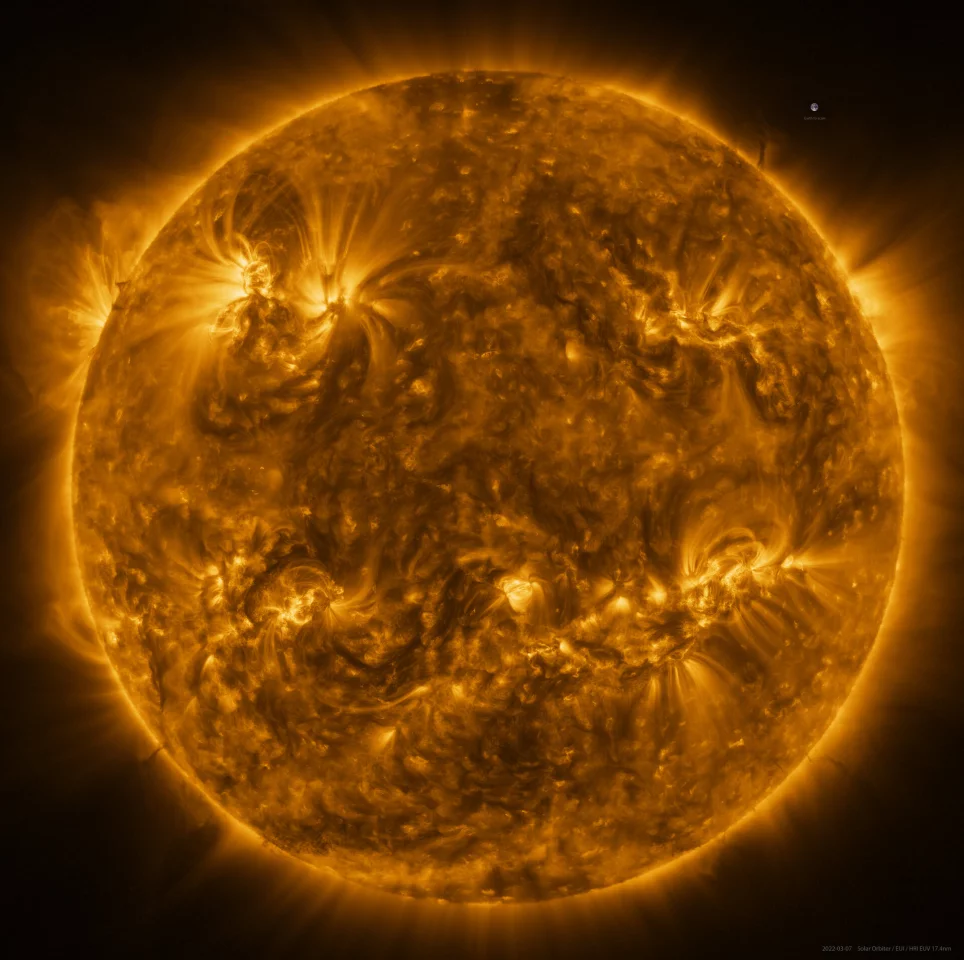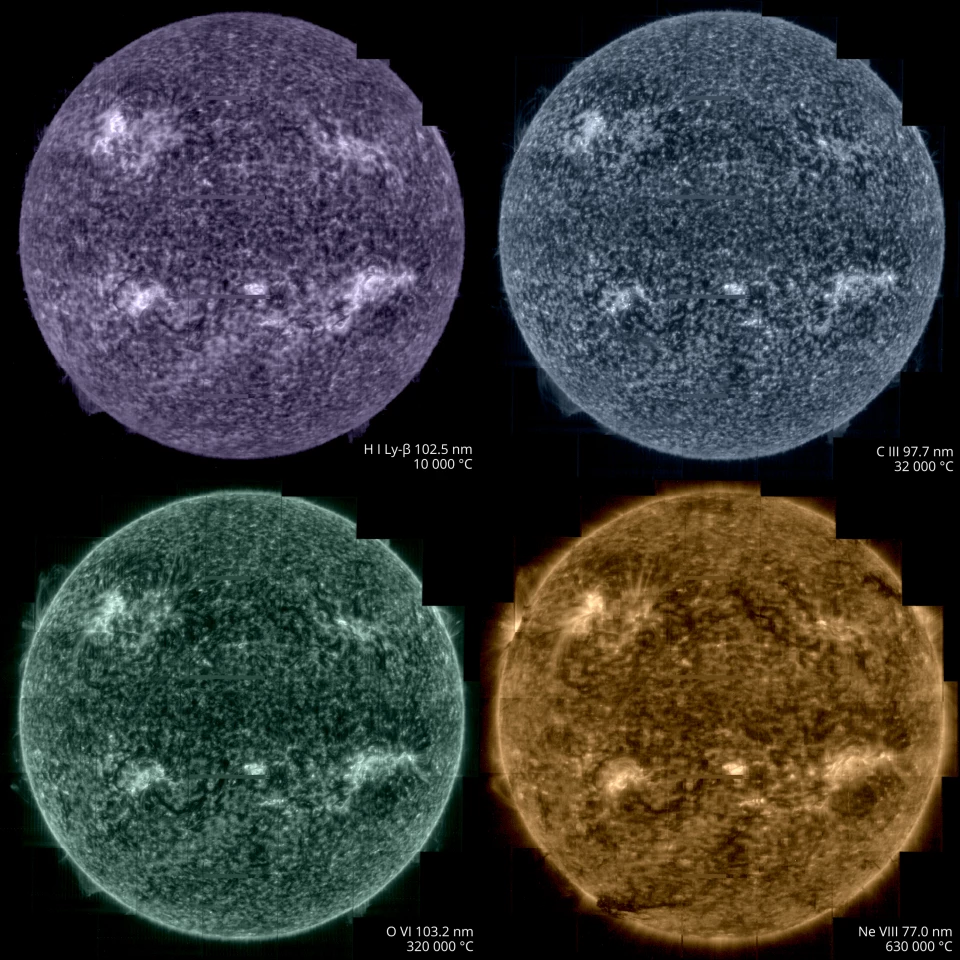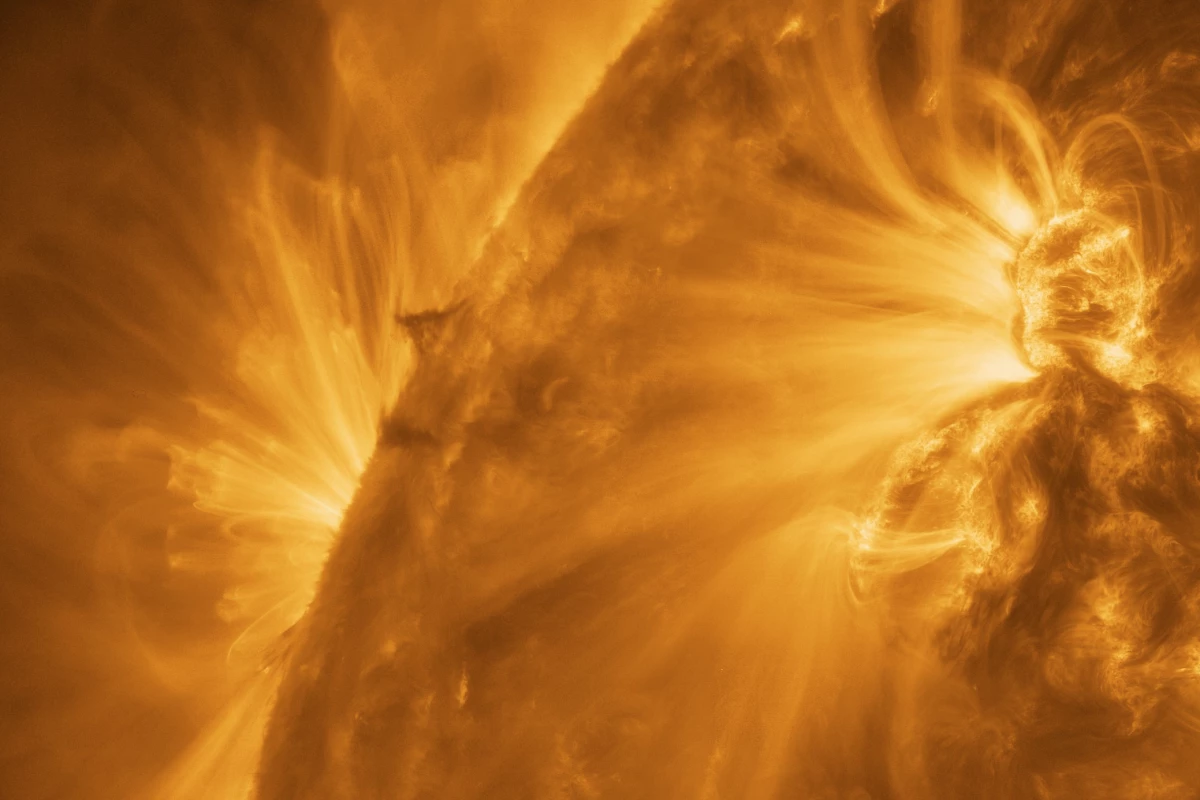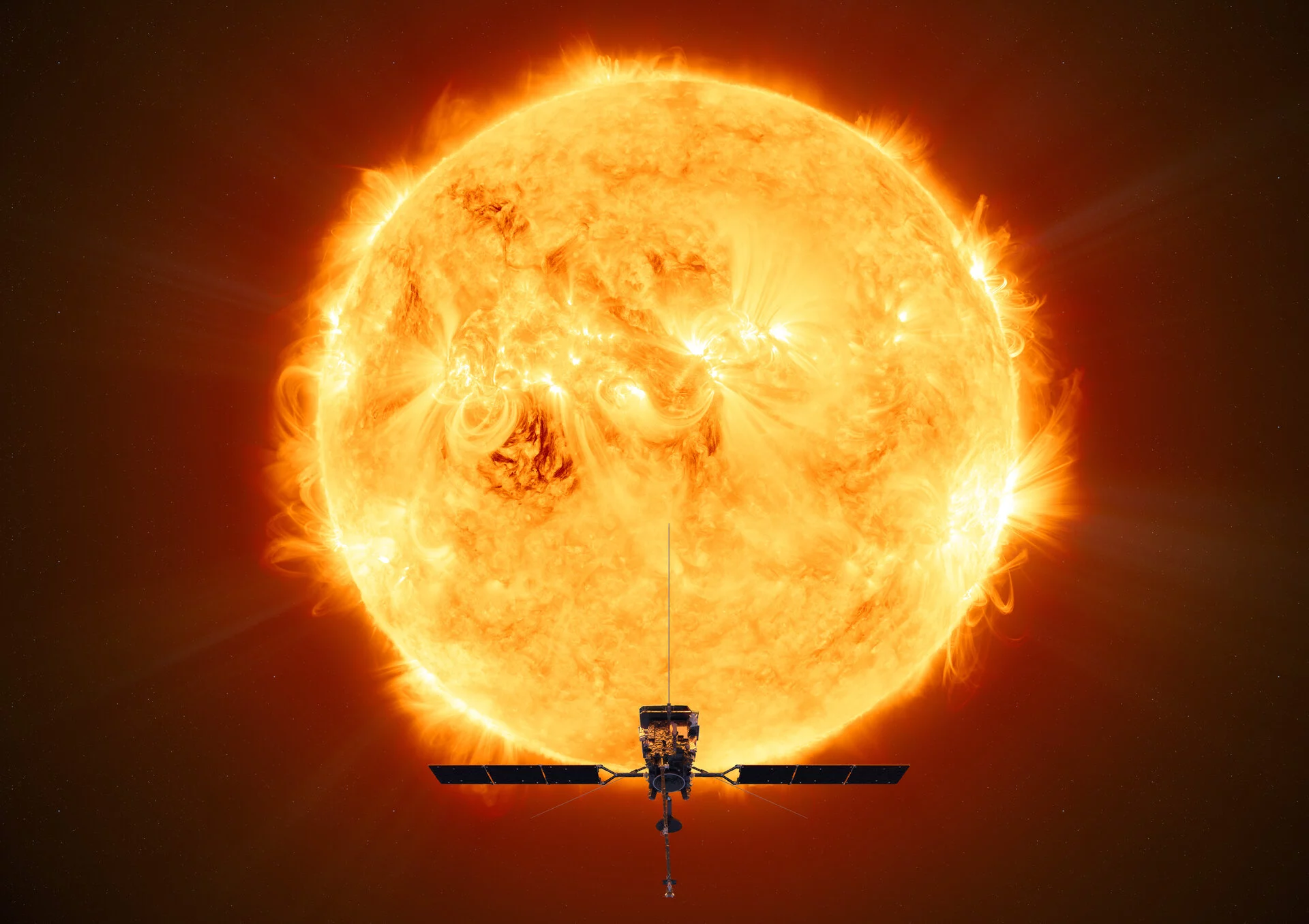Since launching in February of 2020, the Solar Orbiter probe has been zeroing in on the Sun with a suite of instruments designed to unravel some of its secrets. Among those is an advanced ultraviolet imager, which mission control has now used to capture the highest-resolution image ever of the Sun's outer atmosphere.
The incredibly detailed new image was captured by the Extreme Ultraviolet Imager aboard NASA and the ESA's Solar Orbiter, which shoots at the wavelength required to image the Sun's outer atmosphere, or corona, where temperatures sit at around one million °C (1.8 million °F).

The spacecraft was around 75 million km (46 million miles) away from the Sun on March 7 when it captured this sharp new view, taking 25 individual images over the course of four hours to create the final mosaic. This resulting image features more than 83 million pixels in a 9,148 x 9,112 pixel grid, which is a resolution around 10 times that of a 4K TV.
At the same time, the probe's Spectral Imaging of the Coronal Environment (SPICE) instrument was used to image the Sun in the wavelength of ultraviolet light emitted by different atoms. This enables it to peer beneath the corona and take the Sun's temperature at a layer known as the chromosphere.

The purple depicts hydrogen gas at 10,000°C, blue depicts carbon at 32,000°C, green depicts oxygen at 320,000°C, and yellow depicts neon at 630,000°C. These kinds of insights will help scientists understand how temperature rises through the atmospheric layers of the Sun, which counterintuitively is much higher at the corona than it is at the surface (around 5,000 °C).
The full-resolution version of the Sun's corona, as captured by the Solar Orbiter probe, can be viewed online here.
Source: ESA







